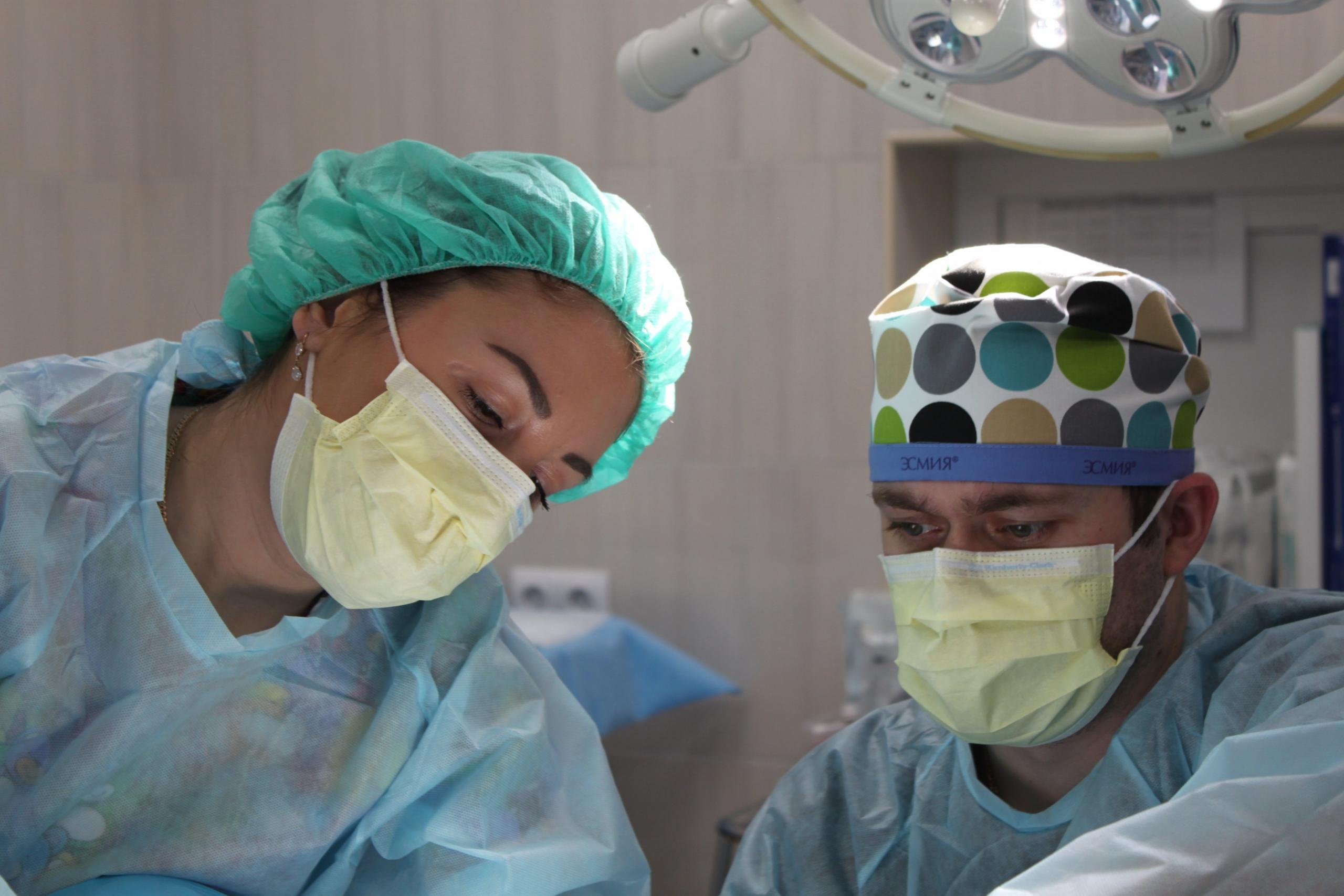There are few professions that afford you the security and opportunity that nursing provides. Nursing is a role that is always needed in society, whether the economy goes through a recessionary period, unemployment rises or a pandemic hits us. There will always be a demand for nurses in our society, especially with the extended sets of skills which nursing graduates are leaving school with today.
Nursing is also a profession which affords students plenty of opportunities all across the globe. You can travel just about anywhere with a nursing degree and you will likely have little difficulty landing yourself a job in the profession. The United States is of course one of the best places that you can attain your qualifications and subsequently work as a nurse.
Becoming a nurse also grants you the opportunity to have an impact on people's lives on a daily basis. You educate patients about their health conditions and advocate for them whenever necessary.
If you're curious about pursuing a nursing career you've come to the right place. This article will guide you through the process of becoming a nurse in the United States by outlining the required steps and qualifications.
Nursing extends beyond being a profession; it is regarded as a vocation. It demands compassion, devotion and an unwavering commitment to aiding others. As a nurse, your work environment can vary greatly, including hospitals, clinics, schools or even private residences. You may also choose to specialize in areas such as pediatrics, geriatrics or critical care.
Regardless of your role or workplace setting you will be part of a team that is dedicated to enhancing the health and overall well-being of your patients.


Detailed Steps on How to Become a Nurse in the US
Becoming a nurse can take varying amounts of time based on the educational path you decide to pursue. If you opt for an Associate Degree in Nursing (ADN) it typically takes around two years.
On the other hand, if you choose to pursue a Bachelor of Science in Nursing (BSN) it usually requires four years. However, there are also accelerated BSN programs for individuals with a bachelor's degree in another field, which can be completed in 18 months.
Once you obtain your degree passing the NCLEX RN exam is necessary to become a RN. The time required to prepare for and successfully pass this exam can take several months. Overall, becoming a nurse typically entails two to five years of dedication and effort depending on your chosen path.
It is important to note that these timelines are estimates as the actual duration may vary based on factors such as program requirements individual study availability and the speed at which one can pass the NCLEX RN exam.
For nursing programs such as Master of Science in Nursing (MSN) or Doctor of Nursing Practice (DNP) completion time can vary between two to four years depending on factors like the program and whether you choose to study full-time or part-time.
Before enrolling in a nursing program certain prerequisites must be met. These usually include satisfactory achievement levels in subjects like biology, chemistry and math during school courses. Certain nursing programs may also mandate the completion of college-level courses in certain subjects.

Discover the key educational milestones and career insights crucial for those seeking excellence in nursing in the city of Boston.
How Much Does a Nurse Make in the US?
The history of nursing in America serves as a tale marked by unwavering dedication, innovative thinking and resilience. It originates from the caregivers of times who provided essential medical assistance within their homes and communities.
Being a nurse is a profession that offers a captivating career path for students to pursue. Although it may not be easy the benefits and rewards make all the hard work worthwhile.
You will experience the gratification of knowing that you are truly making an impact on individuals' lives and actively contributing to the well-being of your community. If you are prepared to begin this rewarding journey let's begin together!
With that said, the road to becoming a qualified nurse in the US is a long one and it is certainly rewarded with the salary you can expect to make from the profession.
| Nursing Role | Average Salary (US) | Education (Years) |
|---|---|---|
| Licensed Nurses | $52,080 | Vocational/Associate Degree (2-3 years) |
| Psychiatric Nurses | $65,500 | Bachelor's Degree (4 years) |
| Pediatric Nurses | $70,335 | Bachelor's Degree (4 years) |
| Registered Nurses | $73,300 | Bachelor's Degree (4 years) |
| Critical Care Nurses | $77,730 | Bachelor's Degree (4 years) |
| Nurse Practitioners | $111,680 | Master's Degree (6-8 years) |
Take the above table for example, the average income of a nurse practitioner in the US is just over $110,000 a year. However, it is important to remember that this can vary based on factors like their specialization, experience level, geographical location of practice and the type of healthcare institution they are employed.
Experienced nurses in New York will not receive the same salary as less experienced nurses living in an area with a lower cost of living. This is evident when we look at Nurse practitioners in the top 10 percent, who earned more than $152,160 while those in the bottom 10 percent earned less than $82,460.

Nurse practitioners generally receive higher salaries in hospitals than those working in physicians' offices or other healthcare facilities. You can also see from the table, the influence of years spent in education and the respective level of education on the amount of money that you can earn in the US.
Explore the dynamic landscape of nursing in Los Angeles, uncovering the challenges and opportunities that shape the path to becoming a skilled and compassionate nurse in this vibrant city.

Exploring Different Types of Nursing Roles
So, now that we have an idea of how much you can expect to earn in the different nursing roles, you’re likely asking yourself what each of these roles actually does. Understanding the different roles within nursing will help you get a better idea of what you might be suited to or what you have to do to earn the salaries shown in the table above. Each role has its set of unique responsibilities and challenges.
Registered Nurses
The role of a Registered Nurse (RN) can involve patient care or managerial positions where they oversee nurses or contribute to healthcare policy through research. Additionally, they educate patients and their families on how to manage their health conditions.
Nurse Practitioners
Nurse practitioners (NPs) are practice nurses who possess the ability to diagnose and treat health conditions, prescribe medications, and provide care. They predominantly work in primary care settings but can also specialize in areas such as pediatrics, geriatrics or women's health.
Pediatric Nurses
Pediatric nurses are registered nurses specializing in the care of children from newborns to adolescents. Their responsibilities include care management of acute and chronic illnesses as well as educating children and their families on maintaining good health.
Licensed Nurses
Licensed nurses (LPNs) deliver nursing care under the supervision of RNs and physicians. They typically operate in settings like nursing homes, hospitals or home healthcare. Moreover, there are nursing roles such as pediatric nurses, critical care nurses and psychiatric nurses among others.
Delve into the educational and professional steps essential for successfully navigating the unique path to nursing in Minneapolis.

The Nursing Process: A Step-By-Step Guide
The nursing process follows an approach to providing care to patients. It consists of five steps; assessment, diagnosis, planning, implementation and evaluation. These steps are ongoing, with each one building upon the previous.
To begin, the assessment phase involves gathering information about the patient's health status. This includes conducting an examination reviewing their history and engaging in conversations to understand their symptoms and concerns.
Moving on to the diagnosis stage the nurse identifies any health issues or problems based on the data collected during the assessment. This then leads to the planning phase where a tailored care plan is developed to address the health needs of the patient. The plan includes objectives and proposed interventions aimed at improving their well-being.
Once the care plan is in place it moves into action during the implementation step. Here, nurses carry out interventions outlined in the plan such as administering medications providing education or coordinating care with healthcare professionals involved in their treatment.
Lastly comes evaluation. The part of this process where nurses assess how effective the care plan has been and make any adjustments if needed. They gauge whether or not the patient's health goals have been achieved through these interventions. If required, modifications are made to improve outcomes and ensure overall care for patients.
Immerse yourself in the diverse and fast-paced world of nursing, navigating the unique opportunities of nursing in New York.
Learn More about Nursing in the US with Superprof
Discover the ease of navigating your nursing education journey with Superprof. Our platform simplifies the tutor search, connecting you with qualified educators who tailor their expertise to your nursing needs in the US.
Easily filter through profiles, assessing experience, reviews, and teaching styles. Whether you're delving into nursing fundamentals or seeking specialized guidance, Superprof ensures a seamless search process.
Choose from a pool of dedicated nursing tutors, enhancing your understanding and accelerating your academic progress.
With Superprof, finding the perfect tutor for your nursing studies becomes effortless, providing a personalized learning experience to support your educational aspirations.
No matter what stage you might be at with your learning, there is value to be taken from scheduling private lessons with one of the nursing tutors listed on Superprof. They will be able to guide you in your career or help you prepare for any exams that you might have on the horizon.
Summarize with AI:




















